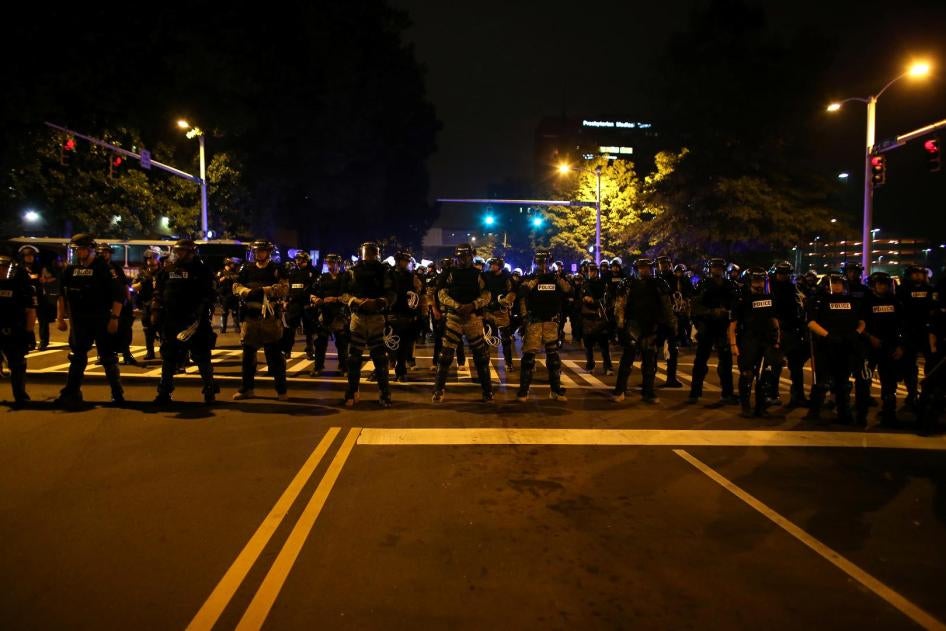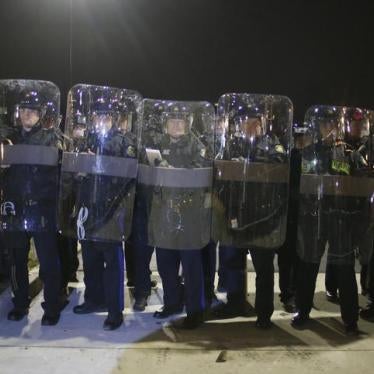(Washington, DC) – Congress should reject a bill that would severely reduce the ability of people in the United States to hold police officers accountable for abuses, Human Rights Watch said today in a letter to the House and Senate Judiciary Committees. The bill would also reduce incentives for police agencies to prevent rights violations.
The Back the Blue Act of 2017 (SB 1134/HR 2437) was introduced on May 16, 2017, by Senator John Cornyn and Representative Ted Poe, both of Texas. It proposes to significantly weaken a key rights protection statute, Section 1983 of the US Code, by limiting the ability of victims of illegal and unjustified police violence to receive compensation for harm. Specifically, the bill would limit liability in situations in which the victim had had some involvement with a felony or “crime of violence,” including property damage. Police are already protected from liability if the use of force is justified. Section 1983 lawsuits have been a primary way for ordinary people to hold police and government officials answerable for violations of their rights. They have also provided an important incentive for police departments to prevent abuses by their officers.
“This bill would not protect police officers from danger,” said John Raphling, senior criminal justice researcher at Human Rights Watch. “Instead, it protects police departments from accountability, and removes important incentives for those departments to monitor themselves and improve the quality of their policing.”
In addition to limiting the right to recover damages inflicted by unjustified police violence, the bill would make all assaults on police officers, even very minor ones, federal crimes subject to severe mandatory minimum sentences. Such mandatory minimums prevent judges from using their discretion to ensure that sentences are reasonable and proportionate to the gravity of the offense committed. The bill would also expand the federal death penalty to cover police killings, even in states that choose not to impose death as punishment under state law, while removing certain habeas corpus and other legal protections that are essential to preventing wrongful convictions and executions.
“Under the guise of protecting officers, this bill would make police less accountable, which can only undermine their legitimacy with the communities they serve,” Raphling said. “Congress should reject this dangerous bill.”
|
News Release
US: Congress Should Reject 'Back the Blue Act'
Would Shield Police From Accountability, Not Protect Them
Your tax deductible gift can help stop human rights violations and save lives around the world.
Region / Country
Most Viewed
-
November 25, 2019
A Dirty Investment

-
June 3, 2025
“They’re Ruining People’s Lives”

-
January 25, 2024
“We’re Dying Here”

-
December 21, 2023
Meta’s Broken Promises

-
February 19, 2018
“All We Want is Equality”





